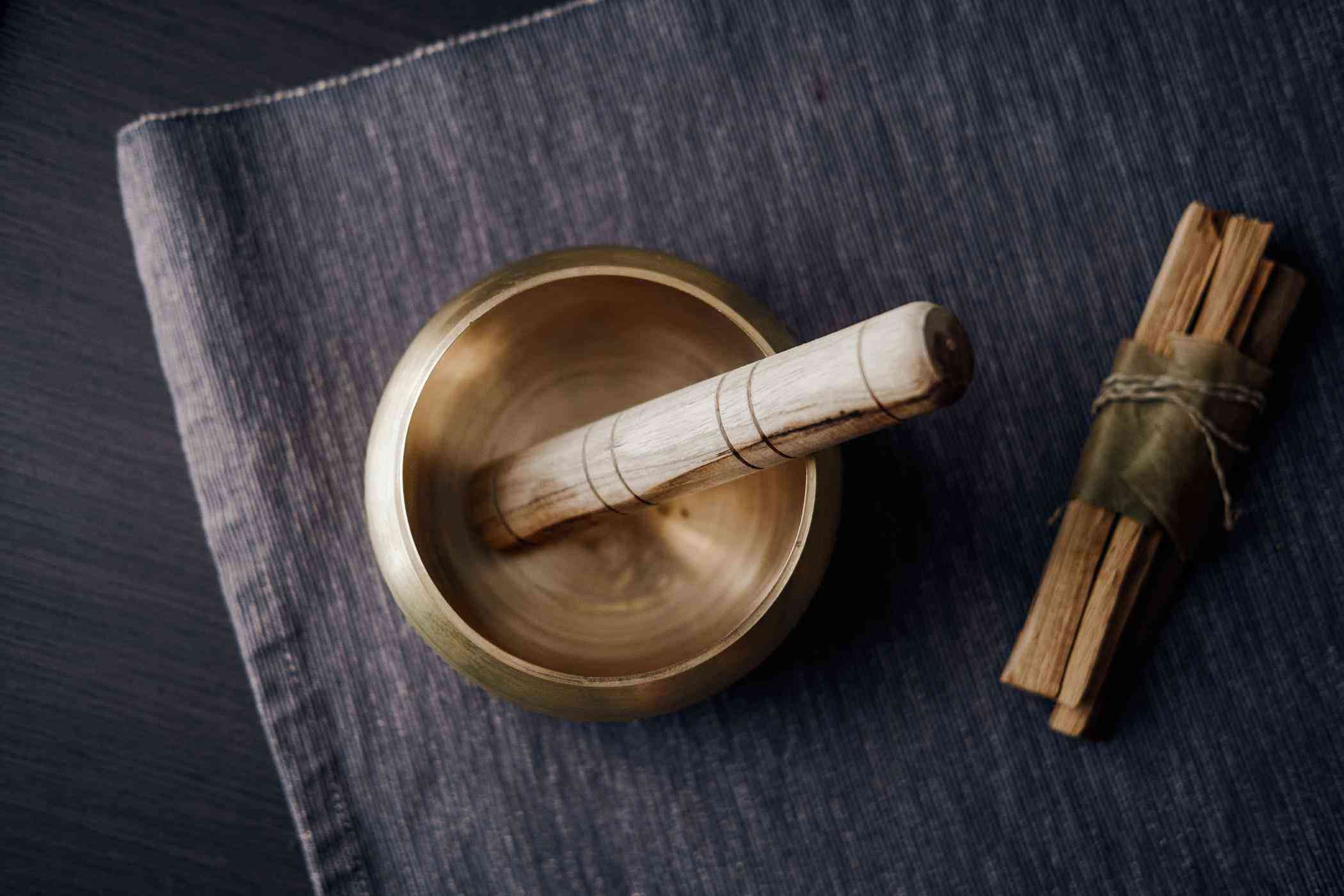 Given their growing popularity, sound baths and gong baths may seem like a modern trend but scriptural texts tell us that sound therapy has been around since the beginning of recorded history.
Given their growing popularity, sound baths and gong baths may seem like a modern trend but scriptural texts tell us that sound therapy has been around since the beginning of recorded history.According to Mandara Cromwell, the founder of the International Sound Therapy Association, sound, light and magnetics have been inextricably linked since 4000 B.C. Now, this healing practice seems to have come a giant full circle, with science enabling us to shed light on the benefits of a practice dating back to ancient civilisations.
Kat Bumbul is the founder of the Sound Mysterium a UK-based organisation offering gong baths, and other sound-based ceremonies and retreats, including singing bowls, meditation and tea ceremonies. Bumbul explains that unlike other practices, like yoga or Tai Chi, you don’t need to actively participate to benefit. The sound bath experience is something passive, which washes over you.
Bumbul believes the appeal of sound baths lies in both their practical power to relax and refresh and something more meaningful and magical.
“Once you've experienced a good gong bath, you want to come back and bring your friends with you,” says Bumbul. “I think people are enchanted with the effect and every time the experience is different. You don't have to do anything—no breathing exercises or postures needed - just lie down and close your eyes.
“The sound of the gongs will put you into a deep meditative state, which helps you to ‘communicate’ with your subconscious. Powerful instrumental vibrations will make your cells dance and you feel more connected to something that is very deep inside of you. After a gong bath, people say they feel fresh and rejuvenated.”
What is a sound bath?
Sound baths are a form of music performance, using instruments including gongs, singing bowls, harmonium, didgeridoo, shamanic drums, humans voice and throat singing. The sounds vibrate through the body, which is believed have a therapeutic effect on your brain and body.
What are the benefits of a sound bath?
“I like comparing a human body to a musical instrument which benefits from a good tuning, and this is what a gong bath is for,” says Bumbul. “We are strongly affected by sound. Our bodies are around 70 per cent water, which makes us a perfect sound conductor.
“Everybody knows how uplifting or soothing your favourite song or piece of music can be. Sound baths go even further. Your body picks up the frequencies that it needs and feel more ‘in tune’ and they can take you right to your core primal state where healing can occur.
“After attending gong baths, people report all manner of benefits, including better sleep, stress release, pain relief, improved self-esteem and creativity. People report that they have found courage to face difficult emotions and the ability to weather life’s challenges. They also connect you to something that feels at the same time meaningful and magical.”
Thanks to their moment under the trendsetter gaze, sound baths are popping up everywhere from your local gym to company away days. On the other side of the spectrum, organisations like the Psychedelic Society run their events in buildings of architectural beauty and curiosity, like London’s historic Round Chapel, to engage all of our senses in the experience.
New to sound baths?
If you’ve never been to a sound bath before it can feel a little daunting and you may wonder about how you should dress or what you should bring with you.
Bumbel advises to wear something comfortable and warm because body temperature tends to drop when you are in a meditative state. Check whether the venue provides mats and blankets or whether you will need to bring your own.
“It's a good idea to wear an eye mask to encourage you to draw your awareness inwards and keep a little bottle of water by your side to ensure you stay well hydrated.”
Who are sound baths not right for?
Sound baths are good for most people, but if you have tinnitus or epilepsy it’s best to avoid sound baths where gongs are used. Most venues will advise that you avoid sound baths during your first trimester of pregnancy. People with serious mental health conditions may also have adverse reactions to the experience.
 By Miriam Christie
By Miriam Christie